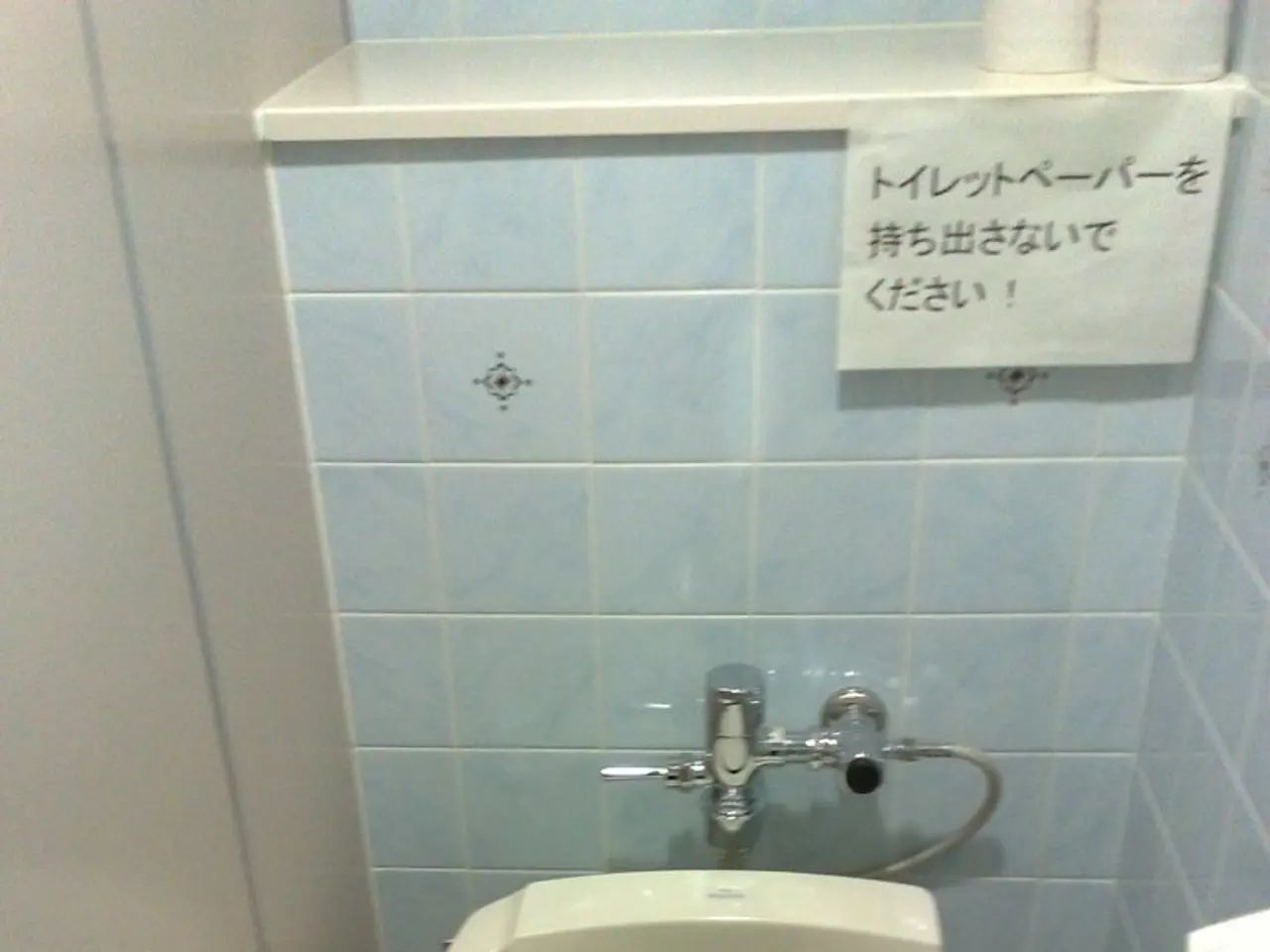Public restroom users in Japan adhere to a unique tradition concerning toilet usage
In Japan, public toilets are more than just a convenience; they are a reflection of the nation's philosophy, embodying cleanliness, order, attention to detail, and respect for others. This makes the experience of using Japanese public toilets a memorable impression for many travelers.
From train stations and parks to shopping centers and city outskirts, Japanese public toilets can be found in various locations. They often boast advanced features such as heated seats, musical accompaniment, and automatic hygiene systems, all designed to ensure comfort and hygiene.
One unique custom that tourists should be aware of is the practice of changing shoes upon entering the toilet. Special slippers are usually provided at the door for this purpose, and it's considered polite to use these slippers and not wear outdoor shoes inside. It's also important to remember not to take these slippers outside the toilet or use them in other rooms.
To avoid cultural faux pas, tourists should be mindful of a few key behaviors. For instance, Japanese toilets often have multiple flush options and bidet functions. It's advised to experiment gently and respectfully with these features since many toilets are self-cleaning and designed for hygiene and comfort.
Maintaining cleanliness is another top priority. It's important to leave the toilet tidy as a sign of respect to other users and the facility itself. Public spaces in Japan, including restrooms, are typically quiet, so loud talking or disruptive behavior should be avoided.
Avoiding improper use of toilets is also crucial. Since toilets have sensitive flushing mechanisms, it's important not to flush inappropriate items and to use the toilet paper and bidet functions properly with care.
Familiarizing oneself with these customs before traveling can enhance the overall experience by avoiding potential awkward situations and showing respect for local culture. It's worth noting that locals in Japan may silently disapprove of disregard for traditional customs related to toilet visits.
In Japan, personal responsibility plays a significant role in maintaining the cleanliness of public toilets. Leaving dirt or disorder behind is considered bad manners and a breach of social contract. Public places, including hotels, traditional restaurants, and private cafes, sometimes require the removal of street shoes.
Ignorance of these customs may result in exiting the restroom in "toilet slippers" into the common corridor or forgetting to change shoes upon entry. By respecting these practices, tourists can demonstrate cultural sensitivity and avoid causing offense while using public toilets in Japan.
For many, the cleanliness and respect for shared space in Japanese public toilets are a source of national pride, embodying the values that make Japan unique.
In addition to public toilets embodying cleanliness, order, and respect for others, fashion-and-beauty can also be observed in the provision of special slippers for tourists at the entrance. Home-and-garden aesthetics are subtly present in the clean and organized restroom design. Travelers may enjoy exploring various locations involving Japanese public toilets, such as train stations, parks, shopping centers, and city outskirts, as these often showcase advanced features for ensuring comfort and hygiene.




